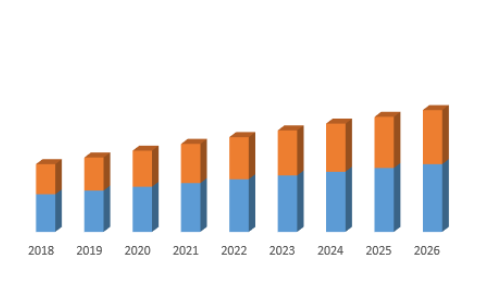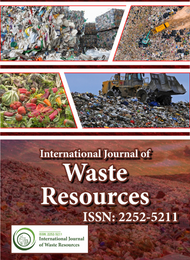Theme: “Waste Recycling Practices for Clean and Green Environmentâ€.
WASTE RECYCLING CONGRESS 2022
Conference Series LLC LTD organizes 1000+ Conferences every year across USA, Europe & Asia with support from 1000 more scientific societies and publishes 1000+ Open access journals which contain over 70000 eminent personalities, reputed scientists as editorial board members, 1200 Symposium & Workshops and 5 million followers. Conference Series Ltd invites all the participants across the globe to attend the “11th International Conference on Recycling & Waste Management”.
WASTE RECYCLING 2022 proudly honoured to invites you all contributors across the globe to “11th International Conference on Recycling & Waste Management” during July 26-27, 2022 at Prague, Czech Republic, which includes prompt keynote presentations, Oral talks,Posterpresentations and Exhibitions.
11th International Conference on Recycling & Waste Management is mainly based on the theme: “ Innovations and Reforms in Recycling and Waste Management’’ We warmly welcome all the participants of World’s leading Scientists, Researchers and Scholars to attend the Convention. We provide a platform for young Researchers and Students to present their Research through oral Presentations through which they can develop a foundation for collaboration among young Researchers.
The Organizing committee aims at setting a platform for all the budding Scientists and Researchers to present their real-time work and share their views and aspects related to the theme of the Conference. The Organizing committee is gearing up for an exciting and informative Conference program including plenary Lectures, Symposia, Workshops on a variety of topics, Poster presentations and various programs for participants from all over the World.
Why to Attend?
The Conference will provide a forum for exchange of recent Research results among Researchers from all across the World focused on learning and sharing Knowledge upon use of recycling and for discussion of future challenges in implementation and application of latest Technologies and advances in this field. With members from around the world focused on learning about Recycling and Waste Management, this is your single best opportunity to reach the largest assemblage of participants from all over the World. Conduct demonstrations, distribute information, meet with current and potential customers, make a splash with a new product line, and receive name recognition at this 2-day event. Best Opportunity to Meet World-renowned speakers and to learn and share the most recent techniques, Theories and Technologies in the field of Recycling and Waste management.
11th International Conference on Recycling & Waste Management is an exciting opportunity to showcase the new Technology, the new products of your Company, and/or the service your Industry may offer to a broad International audience. It covers a lot of topics and it will be a nice platform to showcase their recent Researches on Recycling and Waste Management and other interesting topics.
- Research Scientists
- Recycling Associations
- Recycling Industries
- Recycling Researchers
- Business Entrepreneurs
- Environmental Academia’s
- Ecologists
- Green Energy Training Institutes
- Chemical Engineers
- Environmental Engineers
- Waste Management Associations
- Environmentalist
Track1: Environmental Chemistry
Environmental chemistry is the study of chemical and biochemical processes occurring in nature. These impacts may be felt on a local scale, through the presence of urban air pollutants or toxic substances arising from a waste site, or on a global scale, through depletion of stratospheric ozone or global warming. However, it is important to realize that all forms of matter in our environment whether synthetic or natural are made of chemicals.
Track2: Wastes and Biomass Valorization
Waste and Biomass Valorization is the process of treatment of waste for (landfill) disposal, storage, and in some cases sorting. In the 1990s, depletion of raw materials and socio-economic concerns supported the direct recycling of waste and residues. Various valorization techniques are currently showing promise in meeting industrial demands. Waste and Biomass Valorization is the process of treatment of waste for (landfill) disposal, storage, and in some cases sorting. Various valorization techniques are currently showing promise in meeting industrial demands. Due to depletion of natural resources, increasing greenhouse emissions and awareness of the need for sustainable development in terms of safely reusing waste and biomass, the transformation of waste/biomass to valuable materials and energy is emerging as a strong trend.
Track3:Biodiesel and Biofuels
Biodiesel is a liquid biofuel that successfully replaces petro-diesel, with lower production prices, reducing fuel consumption and engine wear. It’s obtained from natural fats like vegetable oils or animal fats, new or used. Industrial chemical processes used in the manufacturing of this fuel are the esterification and Trans-esterification. This innovative and environmentally friendly biofuel can be used in partial or total substitution of petro-diesel.
Track4: Bio-Plastics
Bio-plastic, moldable plastic material made up of chemical compounds that are synthesized by microbes such as bacteria or by genetically modified plants. Applications of bio-plastics cover a wide area ranging from rigid and flexible packaging materials, including food and drinks containers, dining utensils, electronic devices, to automotive and airplane parts, cable sheaths and casings etc. Bio-plastics can also be processed in very similar ways to petrochemical plastics such as injection moulding, extrusion and thermoforming. To improve their tensile strength, bio-plastic polymers can be blended with their co-polymers or with other polymers.
Track5: Solid Waste Management
Solid waste management refers to all activities pertaining to the control of generation, storage, collection, transfer, and transport, treatment and processing, and disposal of solid wastes in accordance with the best principles of public health, economics, engineering, conservation, aesthetic, and other environmental consideration.
Diabetes-2022 | Nursing Education-2022 | ENT-2022 | Oral Health-2022 | Nephrology-2022 | Vaccines -2022 | Hepatitis-2022 | Eye Care-2022 | Neonatology-2022 | Pulmonogy-2022 | Optics-2022 | Psychology-2022 | Probiotics2022 |Aquaculture-2022 | Food Tech-2022
Track6: Renewable Resources
Renewable resources can be described as a rather tricky balancing act. Renewable resource intake and use commonly do not yield decomposition or contribute to global warming. It is easy to recognize the Environmental advantages of utilizing the alternative and renewable forms of energy but we must also be aware of the disadvantages. It can be crucial to develop the capacity of electricity that is as large as those produced by traditional fossil fuel generators.
Track7: Waste Water treatments
Wastewater treatment is the technique of cleaning the sewage and domestic water by removing contaminants in the form of Organic matter. It is done so to improve the quality of water so that humans and animals can consume it and make use of it for other purposes. Wastewater treatment technologies need to respond to the stresses created on treatment systems by Environmental changes and Population growth.
Track8: Bioremediation
Bioremediation is an option that offers the possibility to render harmless various contaminants using natural biological activity. The control and optimization of bioremediation processes is a complex system of many factors. These factors consist of the existence of a microbial population capable of degrading the pollutants, the availability of contaminants to therobi mical population.
Track9: Bio-Energy from Waste
The potential for increasing total traditional biomass utilization for energy purposes is limited. The thrust of the activities is therefore twofold, one aim is to broaden the scope of biomass utilization into upgrading and the other aim is to broaden the biofuel base as such. This in turn implies an enhanced focus on fuels for transportation and power generation with respect to traditional biomass and a focus on direct heating for more complex biomass, such as waste etc.
Track10: Sustainable waste Management
Sustainable waste Management system incorporates feedback loops, is focused on processes, embodies adaptability and diverts wastes from disposal. Sustainability is at the origin of concepts such as sustainable yield, sustainable society, and sustainable development. Discover some of the visionary ways that we're turning waste into a resource for a brighter, more sustainable future.
Diabetes-2022 | Nursing Education-2022 | ENT-2022 | Oral Health-2022 | Nephrology-2022 | Vaccines -2022 | Hepatitis-2022 | Eye Care-2022 | Neonatology-2022 | Pulmonogy-2022 | Optics-2022 | Psychology-2022 | Probiotics2022 |Aquaculture-2022 | Food Tech-2022
Track11: Landfills
A landfill is a carefully constructed and monitored structure that isolates trash from the surrounding environment. This isolation is accomplished with the use of a bottom liner and daily covering of soil. Landfills need expert design as well as professional operators and a proper management to guarantee their functionality. A secure hazardous-waste landfill must have two impermeable liners and leachate collection systems.
Track12: Microbial Fuel cell Technology
Microbial fuel cells utilize waste carbohydrates as fuel. A microbial fuel cell made with collaboration of micro fluids, micro/Nano technology, and bioenergy. It focuses on the developing scalable microbial fuel cell array that enables parallel analysis of electricigens, microbes that can directly produce electricity.
Track13: Climate Change and Climatology
Climatology and environment science is the legitimate examination of air, deductively portrayed as atmosphere conditions touched base at the midpoint of over a period of time. This present day field of study is seen as a part of the ecological sciences and a subfield of physical topography, or, in other words the Earth sciences. Climatology presently consolidates parts of oceanography and biogeochemistry. Basic learning of environment can be used inside shorter term atmosphere envisioning using basic methodologies, for instance, the El Niño– Southern Oscillation (ENSO), the Madden– Julian faltering (MJO), the North Atlantic influencing (NAO), the Northern Annular Mode (NAM) or, in other words the Arctic faltering (AO), the Northern Pacific (NP) Index, the Pacific decadal faltering (PDO), and the Inter decadal Pacific Oscillation (IPO). Environment models are used for a collection of purposes from examination of the stream of the atmosphere and climate structure to projections of future air. Atmosphere is known as the condition of nature over some stretch of time, while air needs to do with the cool over a contacted uncertain time span.
Track14: Waste Treatment Technologies
There are a number of different waste treatment technologies for the disposal, recycling, storage, or energy recovery from different waste types. Each type has its own associated of waste Management. Relatively simple waste treatment technologies can be designed to provide low cost sanitation and environmental protection while providing additional benefits from the reuse of resources. These technologies use natural aquatic and terrestrial systems.
Track15: Pollution :
Pollution is a grievous change in the physical or characteristic of air, water and soil that may ruinously impact the life or make potential prosperity risk of any living being. Pollution is one the genuine troubles looked by world today. Contamination is the nearness of a poison in nature and is frequently the after effect of human activities. Contamination detrimentally affects the earth. Creatures, fish and other amphibian life, plants and people all endure when contamination isn't controlled. Pollution is the presentation of contaminants into the condition that makes hurtful and lethal impacts living things. Contamination can appear as synthetic substances or vitality, for example, commotion, warmth or light. Contamination is frequently delegated point source contamination or non-point source contamination. Clamor contamination, soil contamination and light contamination also are the harming nature at a disturbing rate. Things as straightforward as light, solid and temperature can be viewed as contaminations when brought falsely into a situation. Air contamination is by a long shot the most destructive type of contamination in our condition. Air contamination is cause by the harmful smoke produced via autos, transports, trucks, trains, and industrial facilities, to be specific sulfur dioxide, carbon monoxide and nitrogen oxides. Lethal contamination influences in excess of 200 million individuals around the world. In a portion of the world's most noticeably bad dirtied spots, babies are brought into the world with birth deserts, kids have lost 30 to 40 IQ focuses, and future might be as low as 45 years in view of malignant growths and different sicknesses.
Diabetes-2022 | Nursing Education-2022 | ENT-2022 | Oral Health-2022 | Nephrology-2022 | Vaccines -2022 | Hepatitis-2022 | Eye Care-2022 | Neonatology-2022 | Pulmonogy-2022 | Optics-2022 | Psychology-2022 | Probiotics2022 |Aquaculture-2022 | Food Tech-2022
The global waste management market is estimated to increase at a CAGR of 6.0 percent from 2018 to 2025, reaching $484.9 billion from $303.6 billion in 2017. Garbage, sewage, and other waste products are collected, transported, and disposed of through waste management. It entails the safe and efficient treatment of solid waste as well as the disposal of products and substances.
The adoption of proactive government initiatives to curb unlawful dumping is driving the growth of the worldwide waste management industry. Furthermore, greater globalization and population growth have resulted in an increase in global garbage volume. In 2012, the urban population generated approximately 1.3 billion tones of municipal solid waste (MSW), which is predicted to increase to 2.2 billion tones by 2020.

Conference Highlights
- Environmental Chemistry
- Waste and Biomass Valorisation
- Biodiesel and Biofuels
- Bio- Plastics
- Solid Waste Management
- Renewable Resources
- Waste Water treatments
- Bioremediation
- Bio- Energy from Waste
- Sustainable waste Management
- Landfills
- Microbial Fuel cell Technology
- Waste Treatment Technologies
- pollution
- Climate Change and Climatology
To share your views and research, please click here to register for the Conference.
To Collaborate Scientific Professionals around the World
| Conference Date | July 26-27, 2022 | ||
| Sponsors & Exhibitors |
|
||
| Speaker Opportunity Closed | |||
| Poster Opportunity Closed | Click Here to View | ||
Useful Links
Special Issues
All accepted abstracts will be published in respective Our International Journals.
- International Journal of Waste Resources
- Advances in Recycling & Waste Management
- Journal of Bioremediation & Biodegradation
Abstracts will be provided with Digital Object Identifier by






